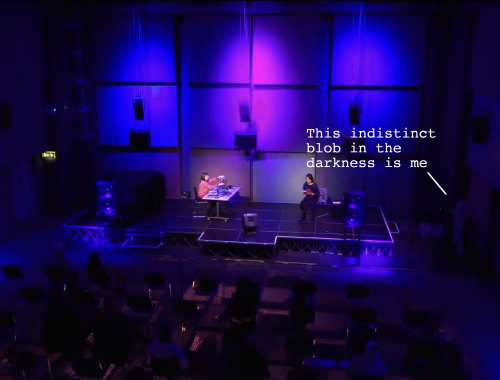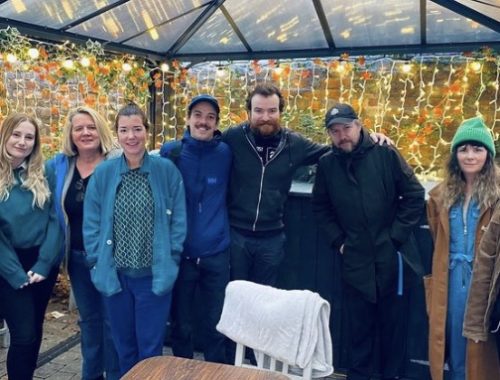Losing Focus 2
When being part of a work placement, it can be disappointing to discover that there may always be aspects of a job you dislike. In these situations, you may have to weigh up the pros and cons of your work and reconsider whether it’s truly for you. I discovered this while working in the arts management department of Kabosh Theatre. Although the company treated me well, I have become uncertain if a career within this department is something I wish to pursue. This revelation occurred to me while experiencing one of the difficulties I had with my work placement: staying focused. To help explain my dilemma, I plan to use Bortons model of reflection. I chose this structure for its simple, general outline, that would allow me to reflect on my placement as a whole rather than on specific moments.
[1]
What?
At times, I struggled to retain concentration at my post. I would become lost in thought or allow myself to be distracted by the internet. This usually occurred when completing jobs that helped with the financing of the company. In, “Theater Careers : A Realistic Guide”, Donhue and Patten state that the general manager “handles the day-to-day business for a specific production”. [2] This often includes budgeting. I found that when working on tasks such as these I was uninterested and would at times lose concentration. My main task was to find grants from across the country that could be used to fund future shows. Unfortunately, I found this task somewhat boring and repetitive. It felt too technical and businesslike, something I may not be used to when working within the theatrical arts. I also failed to see the significance of the task at first and how its completion would help future performances be realised.
[3]
However, there were other assignments I found easier to work on, such as cleaning out Kabosh’s storage room and archive: a small room filled with memorabilia of previous productions, including leaflets, posters, booklets, scripts and other documents. It was my job to divide the material up by production and the kind of item they were, then decide what was to be kept or thrown out. The items we kept were set aside in envelopes for future donations to the Linen hall Library, within their theatre and performing arts collection. This task was important for Kabosh as it kept a record of the company’s past shows and ensured that its history was retained.
[5]
[4]
When I first laid eyes on the storeroom, I was staggered by the initial state of the room. It appeared disorderly and had plenty of production materials to organise. As a result, I felt somewhat overwhelmed and unsure of where to start. Fortunately, once I began organising the material into donations for Linen Hall and rubbish I thought should be thrown out, it became easier. The material we planned to bin usually included extra leaflets and posters that didn’t need to be donated or belonged to shows Kabosh were not planning to revive.
This task also provided me the opportunity to learn more about Kabosh’s history. I found working with the theatre company’s past fascinating and I noticed that while their work evolved over the years, some of their core elements remained the same throughout. Their running theme of “the legacy of conflict” has been present in multiple plays throughout the years [6] such as Green and Blue, (2016) [7] and Shedding of Skin (2021) [8].
[9]
[8]
I thought that when cleaning out the archive, I did a thorough job. I always made sure to keep at least five copies of each piece of material that could be donated to ensure that Linen Hall had spares. I also detailed information on the envelopes, such as the name and performance date of each play, as well as the envelope’s contents. Following this, I compiled the contents of all of the envelopes into a written inventory in order to keep better track of what the company had in its storeroom.
So What?
After completing my archival work, I found that it was more enjoyable than my computer based tasks, possibly due to the sense of progression it had. Throughout my placement, I could see the storage room becoming gradually tidier, so I felt more compelled to bring my work to completion. However, jobs requiring the use of I.T., such as budget management, did not have any immediate impact on the work environment so I found it less rewarding. Additionally, I find tasks that require a hands-on approach more engaging than desk work so I was able to maintain concentration on it. I also enjoyed the historical aspect to it, of helping preserve the company’s theatrical past.
Although I was content with how I completed this task, I was less so with my budgeting work which I had left unfinished. My lack of interest in it may have stemmed from not realising the importance this task can have in ensuring arts projects are adequately funded. Michael M. Kaiser, and Brett E. Egan stated that an organisation “must have the resources it needs to pursue the projects it has marketed and planned for the future”. [10] If I had been more aware of how essential it was to the company, I might have found the task more engaging.
Another reason I failed to be interested may have been the businesslike mindset I believed the task required, something I wasn’t sure I possessed. I believed that logical decision making was more valuable in budgeting than a creative mind, which I was more confident I had. Kaiser, and Egan state that, “most arts managers are mercilessly frugal and entrepreneurial”. [10] This has made me consider the possibility that my turn off from budgeting came from a lack of confidence in my ability rather than genuine disinterest.
[11]
Now What?
Completing my work experience has allowed me to pinpoint the aspects of theatre production and general management I am unsure I like, such as budgeting. While I may not have enjoyed this part of my work as much as the others, it is also important to remember that there will always be aspects of jobs I will not enjoy doing. Although I found budgeting difficult, the parts of my placement that involved archival work and managing the office were still enjoyable, so the pros may outweigh the cons. For the future, I plan to gain further work experience in production while also trying to pursue work in other aspects of theatre, such as acting and stage management. By the end of this additional experience, I will hopefully have a better idea of whether producing is for me.
Word Count: 1095
References:
[1] – Andrew Grimmer, ‘On reflection: part 3 – reflection as a skill’ in Bristol CBT <http://www.rep.routledge.com> [accessed 02 April 2022].
[2] – Tim Donahue, and Jim Patterson, Theater Careers : A Realistic Guide (Columia: University of South Carolina Press, 2012), p. 14.
[3] – Complete Controller, ‘7 Keys to Successful Budgeting’, in COMPLETE CONTROLLEER <https://www.completecontroller.com/7-keys-to-successful-budgeting/> [accessed 2 April 2022].
[4] – Independent Libraries Association, ‘THE LINEN HALL LIBRARY’, in Our Libraries <https://www.independentlibraries.co.uk/the-linen-hall-library> [accessed 5 May 2022].
[5] – Kabosh Theatre company,
<https://m.facebook.com/story.php?story_fbid=10158057467122553&id=25656222552> [accessed 5 May 2022].
[6] – Kabosh Theatre Company, ‘About us’ <https://kabosh.net/about-us/> [accessed 6 May 2022] .
[7] – Kabosh Theatre Company, ‘Green and blue’, in Past Productions
<https://kabosh.net/production/greenandblue/> [accessed 6 May 2022].
[8] – Kabosh Theatre Company, ‘The Shedding of Skin’, in Current Productions
<https://kabosh.net/about-us/> [accessed 6 May 2022].
[9] – Sophie Aumailley, ‘Green and Blue: Dealing with troubled stories of border policing’, in Shared Future News
<https://sharedfuture.news/green-and-blue-dealing-with-troubled-stories-of-border-policing/> [accessed 6 May 2022].
[10] – Michael M. Kaiser and Brett E. Egan, The Cycle : A Practical Approach to Managing Arts Organizations (Waltham: Brandeis University Press, 2013), p. 138.
[11] Rickie Yap, ‘8+8 Signs Your Employee/You Has Lost Interest’, in Linked In <http://www.rep.routledge.com> [accessed 2 April 2022].
Bibliography:
Aumailley, S. ‘Green and Blue: Dealing with troubled stories of border policing’, in Shared Future News
<https://sharedfuture.news/green-and-blue-dealing-with-troubled-stories-of-border-policing/> [accessed 6 May 2022]
Complete Controller, ‘7 Keys to Successful Budgeting’, in COMPLETE CONTROLLEER <https://www.completecontroller.com/7-keys-to-successful-budgeting/> [accessed 2 April 2022]
Donahue, T. and Patterson, J. Theater Careers: A Realistic Guide (Columia: University of South Carolina Press, 2012), p. 14
Grimmer, A. ‘On reflection: part 3 – reflection as a skill’ in Bristol CBT <http://www.rep.routledge.com> [accessed 02 April 2022]
Independent Libraries Association, ‘THE LINEN HALL LIBRARY’, in Our Libraries <https://www.independentlibraries.co.uk/the-linen-hall-library> [accessed 5 May 2022]
Kabosh Theatre company,
<https://m.facebook.com/story.php?story_fbid=10158057467122553&id=25656222552> [accessed 5 May 2022]
Kabosh Theatre Company, ‘The Shedding of Skin’, in Current Productions
<https://kabosh.net/about-us/> [accessed 6 May 2022]
Kabosh Theatre Company, ‘About us’ <https://kabosh.net/about-us/> [accessed 6 May 2022]
Kabosh Theatre Company, ‘Green and blue’, in Past Productions
<https://kabosh.net/production/greenandblue/> [accessed 6 May 2022]
Kaiser, Michael M., and Brett E. Egan, The Cycle : A Practical Approach to Managing Arts Organizations (Waltham: Brandeis University Press, 2013), p. 138Yap, R. ‘8+8 Signs Your Employee/You Has Lost Interest’, in Linked In <http://www.rep.routledge.com> [accessed 2 April 2022]
Challenges as an Assistant Director
You May Also Like

Teamwork Makes the Stream Work
27 March 2022
An Experience Never To Forget
1 April 2022
